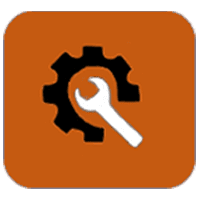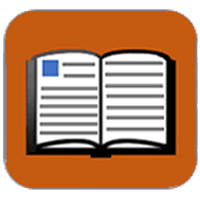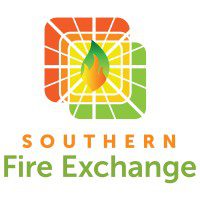Fire Communication & Education
Access the tool.
This tool is called the Climate and Economic Justice Screening Tool. The tool has an interactive map and uses datasets that are indicators of burdens in eight categories: climate change, energy, health, housing, legacy pollution, transportation, water and wastewater, and workforce development. The tool uses this information to identify communities that are experiencing these burdens. These are the communities that are disadvantaged because they are overburdened and underserved.
View article.
In this Research-Partnership Highlight, we argue that private-public partners in such settings must be strategic in their selection of tasks to generate “small wins” in order to build the trust, competency, and legitimacy needed to advance an approach for landscape-scale fine fuels management. We highlight a fine fuels reduction partnership consisting of public and private entities in southeastern Oregon that established a research and education project and applied dormant season grazing on three pastures within the Vale District Bureau of Land Management. We describe the impetus for the partnership, antecedents, strategic tactics, and ongoing learning and reflection used to revise processes. In this example, implementing dormant season grazing as a research and education project allowed the partners to assess the efficaciousness of the treatment, as well as the operational logistics and administrative competencies necessary to apply the treatment to manage fine fuels at broader scales. Because dormant season grazing may, in some instances, conflict with established practices and norms, small-scale projects such as this allow partners to refine understandings of the social and administrative conditions that make implementation possible. Generating small wins through projects such as this is a critical precursor for partnerships seeking to take on larger, more complex endeavors that involve increasing ecological, economic, and social uncertainty.
View article.
We found that many community members were initially drawn to learn about wildfre risk mitigation, but their informational needs shifted toward broader forest ecology over time, suggesting that communication strategies and topics must also evolve over time. Some common terms used by land management professionals were unclear to public audiences, sometimes leading to feelings of dissatisfaction with outreach. One-on-one meetings and experiential group learning were perceived by information providers and community members to be useful strategies for outreach. Our fndings can be used to improve ongoing outreach in this study area and inform similar efforts elsewhere.
View article.
Five ethical lenses were generated from the thematic coding process: Epistemologies and Representation, Values and Priorities, Risk and Uncertainty, Power, and Metaethics. The five lenses provide a framework to identify prospective ethical tensions in wildland fire decision-making, both within and cutting across categories. This framework provides a way of structuring future investigations into wildfire ethics, as well as a starting point for developing techniques to integrate community and stakeholder values.
Webinar recording.
Description: This webinar will summarize recent research examining the equity implications of rising wildfire risk and associated costs, including insurance coverage and the comparative costs for risk management activities in populations with different incomes.
Presenter: Matthew R. Auer; The University of Georgia School of Public and International Affairs
Webinar registration.
From building firelines to researching fire trends over time, fire management and science require great communication to be successful. Our panel will share their experiences and tips on how to effectively talk about fire to gain support and build a collaborative network. We’ll address your questions about fire science communication and discuss best practices for defining objectives, connecting with your audience, and tools/resources that can help along the way.
Webinar recording.
Description: This webinar will go over results of a recent literature review of studies that focus on the environmental justice aspects of wildfire, as well as present preliminary findings on how different socio-demographic groups have been affected by wildfires across California in the last decade.
Presenter: Francisco Escobedo; US Forest Service Pacific Southwest Research Station
Webinar recording.
Description: The U.S. Forest Service’s Wildfire Crisis Strategy, and the Bipartisan Infrastructure Law that is funding the agency’s initial investments to reduce wildfire risk under the Strategy, both call for considering equity and environmental justice when implementing projects. We present practical applications of our research on the environmental justice implications of hazardous fuels reduction, including new tools, that help address this need.
Presenters: Susan Charnley & Mark Adams; US Forest Service Pacific Northwest Research Station
View article.
Prebunking and debunking misinformation are first steps toward ensuring that policy makers, journalists, judges, members of the public, and elected officials are skeptical of weakly supported scientific information, which can hinder effective wildfire management.
Webinar recording.
How will you deliver your message to the right people?
Rangeland professionals know a lot about rangeland ecology and management, but not about marketing, especially online communication. Online communication is here to stay, investing time now to learn more about it will prepare you for the future.





